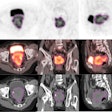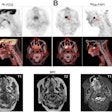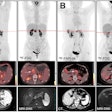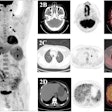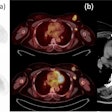Targeted radiotherapy delivered to women undergoing surgery for early breast cancer could offer a feasible alternative to current procedures, which require daily radiotherapy sessions for weeks after surgery, according to two new studies published in Lancet and Lancet Oncology.
The majority of women who have lumpectomy surgery for breast cancer also undergo external-beam radiotherapy, a course of radiotherapy delivered to the whole affected breast. External-beam radiotherapy reduces the risk of cancer recurring, but it requires women to visit radiotherapy centers for 20 to 30 days after surgery, making access an issue for those who live in remote areas.
In fact, some women who are eligible for lumpectomy may decide to have a full mastectomy because they can't follow through on the radiotherapy necessary after breast-conserving surgery.
Two groups of European researchers investigated whether a single dose of radiation, focused on the site of the tumor and dispensed either during or soon after surgery, could be an alternative to extended radiotherapy.
TARGIT shows promise
Dr. Jayant Vaidya, PhD, from University College London, and colleagues compared the performance of single-dose targeted intraoperative radiotherapy (TARGIT) to that of fractionated external-beam radiotherapy (EBRT) given in daily doses for three to six weeks. Over 12 years, 1,721 women received TARGIT, while a control group of 1,730 women received EBRT (Lancet, November 11, 2013).
When administered at the same time as the lumpectomy, a single TARGIT treatment was as good as a course of EBRT in controlling cancer, the researchers found. In fact, the overall mortality rate was slightly lower with TARGIT, at 3.9%, compared with 5.3% for EBRT, due to fewer deaths from cardiovascular causes and other cancers.
The study supports the use of TARGIT along with lumpectomy, provided that patients are selected carefully, according to Vaidya and colleagues. There's even an app called "TARGIT decision" for iOS and Android that helps clinicians determine which patients could qualify, Vaidya told AuntMinnie.com via email.
"These findings suggest that for suitable patients, TARGIT trial results should be discussed before lumpectomy is performed," Vaidya said. "Patients selected as per the TARGIT protocol and with generally good prognosis cancers could now be offered TARGIT as a standard treatment."
The ELIOT trial
In the Lancet Oncology paper, researchers from Italy, led by Dr. Umberto Veronesi of the European Institute of Oncology in Milan, discussed a trial that investigated a slightly different method of delivering targeted radiation: electron intraoperative radiotherapy (ELIOT). With this type of radiotherapy, electrons are administered in one session during surgery, with a total dose of 21 Gy.
Veronesi's study included 651 women who received ELIOT during lumpectomy for early breast cancer treatment, and a control group of 654 women who received standard EBRT after lumpectomy. As the researchers assessed outcomes, they differentiated between breast cancer that recurred in the same site as the tumor and cancer that recurred in the same breast that had been operated on.
In both cases, recurrence after five years was significantly higher in the ELIOT group than in the control group, at 2.5% for local recurrence and 4.4% for ipsilateral recurrence, compared with 0.4% in the control group, according to the authors (Lancet Oncology, November 11, 2013).
However, the overall survival rates at five years after treatment didn't differ significantly, with 34 deaths in the ELIOT group and 31 deaths in the control group, the team discovered.
"Although our results show that five-year rates of local recurrence were significantly higher in women who received ELIOT, we need to bear in mind that for some women, the benefits of not needing to complete weeks of radiotherapy will outweigh a higher risk of local recurrence," said Veronesi in a statement released by Lancet Oncology.
These results indicate that "intraoperative radiotherapy during breast-conserving surgery is a reliable alternative to conventional postoperative fractionated irradiation, but only in a carefully selected population at low risk of local recurrence," wrote Drs. David Azria and Claire Lemanski, of the Institut du Cancer in Montpellier, France, in a comment also published on November 11 in Lancet.












